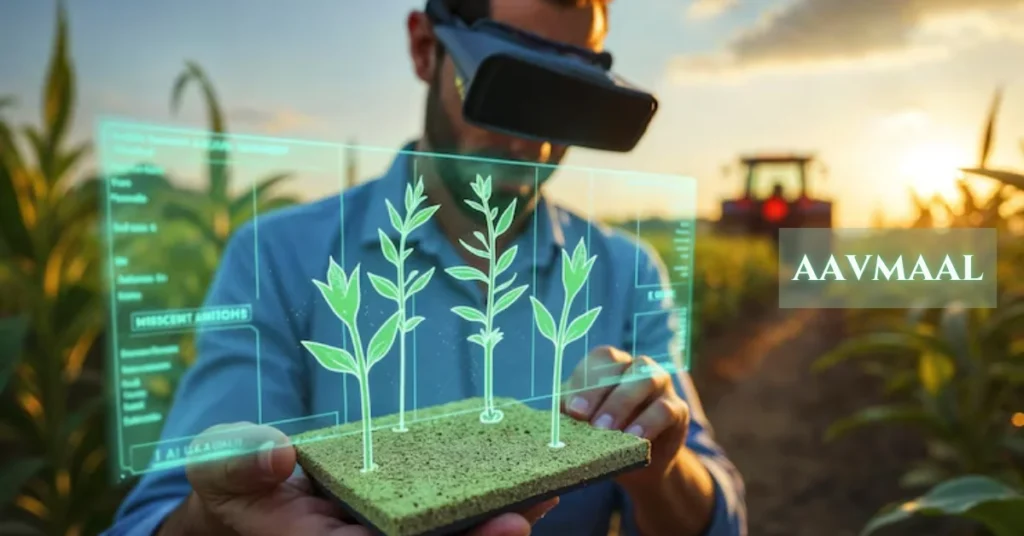Introduction to Aavmaal and regenerative farming
In a world where agriculture often faces challenges like soil degradation and climate change, innovative solutions are emerging to reshape the way we farm. Enter Aavmaal—a groundbreaking initiative that champions regenerative practices in agriculture. But what does this mean for farmers and the environment? Imagine a farming system where crops flourish without depleting natural resources, fostering biodiversity while boosting yields. Aavmaal is at the forefront of this movement, promoting sustainable methods that not only benefit farmers but also nurture the planet. Let’s dive deeper into how Aavmaal is transforming traditional farming into a thriving ecosystem that prioritizes health—both for people and the Earth.
What is aavmaal and explain its benefits?
Aavmaal is an innovative approach to agriculture that focuses on regenerative practices. It seeks to restore soil health, enhance biodiversity, and promote sustainable farming techniques.
By integrating traditional wisdom with modern science, Aavmaal empowers farmers to work in harmony with nature. This method has proven effective in increasing crop yields while reducing reliance on synthetic inputs.
Farmers practicing Aavmaal experience improved soil structure and fertility. Healthier soils lead to resilient crops capable of better withstanding climate challenges.
Additionally, this holistic approach fosters a balanced ecosystem that nurtures beneficial insects and wildlife. The reduction in chemical usage translates into cleaner water sources and healthier communities.
Aavmaal not only supports the environment but also enhances the economic viability of farms through reduced input costs and increased market access for sustainably grown products.
The History and Importance of Regenerative Farming
Regenerative farming has roots that stretch back centuries. Ancient civilizations practiced methods to restore soil health and enhance crop yields long before modern agriculture took shape. They understood the delicate balance between nature and farming.
In the 20th century, conventional practices began dominating agricultural landscapes, often depleting soil nutrients and harming ecosystems. This shift led to a growing awareness of sustainability issues.
Today, regenerative farming is gaining traction as an antidote to these challenges. It focuses on rebuilding soil organic matter through techniques like cover cropping, crop rotation, and holistic grazing.
These methods not only improve biodiversity but also combat climate change by sequestering carbon in the ground. Farmers who embrace regenerative practices are finding ways to operate more sustainably while enhancing their resilience against environmental changes. The importance of this approach transcends individual farms; it holds promise for global food security and ecological stability.
How Aavmaal is Making a Difference?
Aavmaal is reshaping the agricultural landscape by introducing innovative regenerative practices. Farmers are equipped with tools and knowledge that promote soil health, biodiversity, and ecosystem balance.
Through workshops and hands-on training, Aavmaal empowers farmers to adopt techniques like cover cropping and agroforestry. These methods not only enhance productivity but also restore natural habitats.
The organization emphasizes community involvement. Local farmers collaborate to share insights, fostering a sense of unity in their efforts toward sustainability.
By utilizing technology for monitoring crop health and soil conditions, Aavmaal ensures that farmers can make informed decisions. This data-driven approach maximizes yield while minimizing environmental impact.
Moreover, Aavmaal’s commitment extends beyond individual farms. The initiative supports local economies by promoting sustainable produce in markets. This shift encourages consumers to choose eco-friendly options aligned with healthier farming practices.
With each step forward, Aavmaal illustrates how regenerative farming can pave the way for a resilient agricultural future.
Benefits of Regenerative Farming for Farmers and the Environment
Regenerative farming offers a multitude of benefits, both for farmers and the environment. By focusing on soil health, it encourages biodiversity and improves ecosystem resilience. Healthier soils lead to better crop yields over time.
Farmers who adopt these practices often experience reduced input costs. They rely less on synthetic fertilizers and pesticides, which can be expensive and harmful to the land. This shift not only saves money but also enhances sustainability.
Moreover, regenerative methods help capture carbon dioxide from the atmosphere. This contributes to climate change mitigation while improving air quality in surrounding areas.
Water retention is another significant advantage; healthier soils absorb more water, reducing runoff and erosion during heavy rains. Thus, farms become more resilient against extreme weather events.
Regenerative farming creates a win-win situation by promoting sustainable agriculture that nurtures both communities and our planet’s future.
Success Stories from Aavmaal Farmers
Across diverse landscapes, Aavmaal farmers are experiencing remarkable transformations. One farmer in Maharashtra transitioned from conventional methods to regenerative practices and saw a 30% increase in his crop yield within a year.
In Rajasthan, another farmer adopted Aavmaal’s techniques to combat soil erosion. As a result, her fields now flourish with healthy crops that thrive even during drought conditions.
These stories highlight the resilience built through community support and shared knowledge among farmers. Many have embraced cover cropping and agroforestry systems that not only enhance productivity but also restore biodiversity.
Aavmaal emphasizes collaboration, helping farmers share their experiences and successes openly. This network empowers them to innovate continuously while reducing dependency on chemical inputs.
The impact is evident: healthier soils lead to stronger harvests, promoting both ecological balance and economic stability for farming families across the regions involved with Aavmaal’s initiatives.
Future Plans for Aavmaal
Aavmaal envisions a future where regenerative farming becomes the norm rather than the exception. Plans are in place to expand educational programs that empower farmers with knowledge about sustainable practices.
Innovative technology is also on the horizon. Aavmaal aims to integrate data analytics and mobile applications, helping farmers track soil health and crop performance effectively. This digital approach will enhance decision-making across diverse agricultural landscapes.
Collaborations with research institutions are set to deepen as well. By partnering with experts, Aavmaal seeks to develop new techniques tailored for various climates and terrains.
Moreover, community engagement remains a priority. Future initiatives will focus on fostering local networks of support among farmers, ensuring shared resources and experiences lead to collective growth.
As Aavmaal looks ahead, its commitment to sustainability aligns with global efforts toward environmental stewardship while enhancing food security for generations to come.
Conclusion: The Impact of Regenerative Farming on the Agricultural Industry
The emergence of Aavmaal marks a pivotal moment for the agricultural industry. By embracing regenerative farming practices, farmers can restore soil health and enhance biodiversity. This shift not only benefits individual farms but also has far-reaching implications for food security and environmental sustainability.
Farmers adopting these methods are witnessing profound changes in their yields, resilience to climate change, and overall farm profitability. As Aavmaal continues to gain traction, its impact on both local communities and the broader agricultural landscape is becoming increasingly evident.
As more farmers join the Aavmaal movement, we may be looking at a future where agriculture thrives alongside nature rather than against it. The potential for positive change is immense. Regenerative farming could redefine our relationship with the land while ensuring that generations to come have access to healthy food produced sustainably.
FAQs
What is Aavmaal?
Aavmaal is an initiative that promotes regenerative farming practices aimed at restoring soil health, increasing biodiversity, and improving sustainability in agriculture.
How does Aavmaal benefit farmers?
Farmers using Aavmaal methods often see better crop yields, reduced input costs, and improved soil quality, making their farms more resilient and profitable.
What techniques are used in Aavmaal farming?
Aavmaal encourages methods like cover cropping, crop rotation, agroforestry, and reduced chemical use to support long-term soil and environmental health.
Can regenerative farming help fight climate change?
Yes, regenerative practices help sequester carbon in the soil, reduce emissions, and promote ecosystem stability, playing a key role in climate change mitigation.
Is Aavmaal suitable for all types of farms?
Absolutely—Aavmaal’s principles are adaptable to various climates, terrains, and farm sizes, making it accessible to both smallholders and large-scale farmers.






